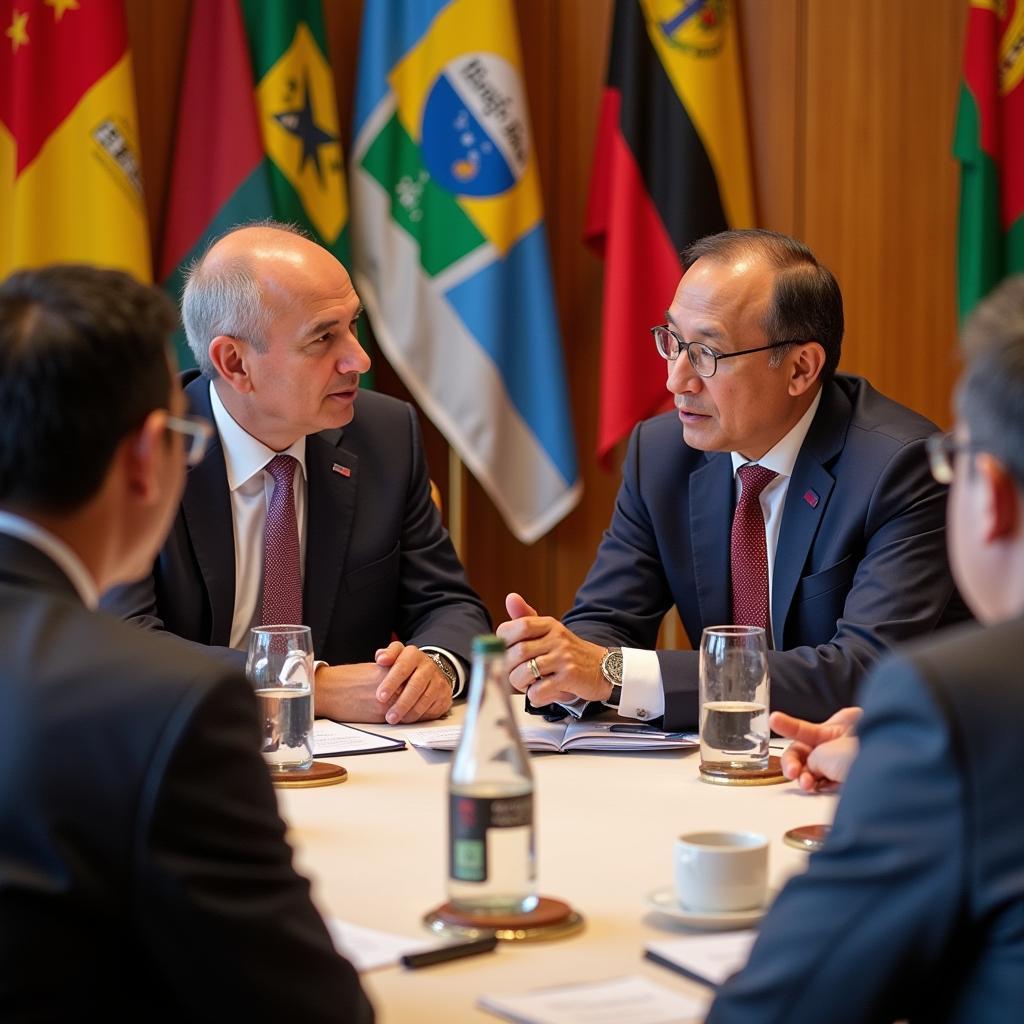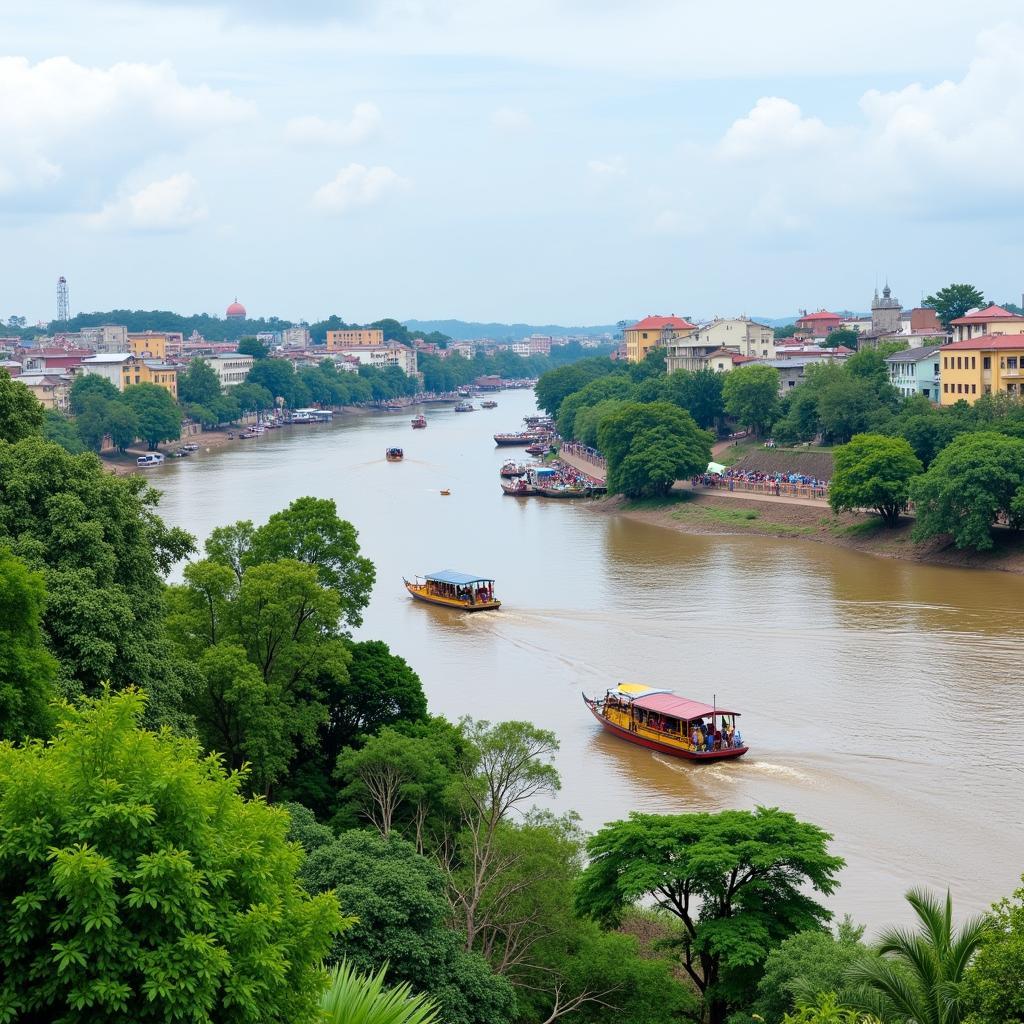The African, Caribbean and Pacific Group of States: A Comprehensive Guide
The African, Caribbean and Pacific Group of States (ACP) is an organization created in 1975 by the Georgetown Agreement. It is composed of countries in Africa, the Caribbean, and the Pacific that share a common goal of sustainable development and poverty eradication. The ACP works closely with the European Union through the Cotonou Agreement, a treaty that outlines development aid, trade, and political cooperation between the two groups.
Understanding the ACP’s Purpose and Evolution
The ACP Group was initially formed to address the challenges faced by former European colonies in Africa, the Caribbean, and the Pacific. These nations, often with shared histories of exploitation and underdevelopment, sought to leverage their collective power to negotiate better trade deals and receive development assistance.
Over time, the ACP’s mandate has expanded beyond its initial focus on trade and aid. The organization now plays a key role in promoting democracy, good governance, and human rights. It also addresses critical global issues such as climate change, peace and security, and migration.
Key Objectives of the ACP Group
The ACP Group is driven by a commitment to improving the lives of its citizens and creating a more just and equitable world. Its key objectives include:
- Sustainable Development: The ACP is dedicated to achieving the Sustainable Development Goals (SDGs) within its member states. This involves promoting economic growth, social progress, and environmental protection.
- Poverty Reduction: A core focus of the ACP is to alleviate poverty in all its forms and dimensions. The organization works to create opportunities for inclusive and sustainable economic growth, particularly in rural communities.
- Trade and Investment: The ACP advocates for fair and equitable trade policies that benefit its member states. The group seeks to enhance trade among ACP countries and with the rest of the world, facilitating investment and economic diversification.
- Regional Integration: Recognizing that strength lies in unity, the ACP promotes regional integration among its member states. This involves fostering closer cooperation on political, economic, and social issues.
- Global Cooperation: The ACP actively participates in international forums to voice the concerns of its members and advocate for a more just and equitable global order. The organization works with development partners, international organizations, and civil society to address global challenges.
 ACP Group Meeting
ACP Group Meeting
The Cotonou Agreement: A Cornerstone of ACP-EU Relations
The Cotonou Agreement, signed in 2000 and revised in 2010 and 2021, is the most comprehensive partnership agreement between developing countries and the EU. It governs the relationship between the ACP Group and the European Union, focusing on development cooperation, trade, and political dialogue.
Under the Cotonou Agreement, the EU provides substantial financial assistance to ACP countries to support their development efforts. The agreement also grants ACP countries preferential access to the EU market for their exports. Beyond these economic aspects, the Cotonou Agreement promotes political dialogue and cooperation on issues of mutual interest, including peace and security, human rights, and good governance.
The Future of the ACP: Challenges and Opportunities
The ACP Group faces a number of challenges in the 21st century, including:
- Climate Change: Many ACP countries are particularly vulnerable to the impacts of climate change, including rising sea levels, extreme weather events, and desertification.
- Debt Sustainability: High levels of debt continue to plague many ACP countries, hindering their ability to invest in essential services and infrastructure.
- Peace and Security: Conflicts and instability in some ACP regions threaten development gains and pose significant challenges to human security.
Despite these challenges, the ACP Group also has significant opportunities to leverage its collective power and advance the interests of its member states:
- South-South Cooperation: The ACP is well-positioned to strengthen cooperation among its member countries and with other developing nations, sharing knowledge, expertise, and resources.
- Technological Advancements: Embracing technological advancements can help ACP countries accelerate progress in areas such as agriculture, healthcare, and education.
- Sustainable Tourism: Many ACP countries possess rich cultural heritage and natural beauty, offering potential for sustainable tourism development.
Conclusion: The ACP Group’s Enduring Relevance
The African, Caribbean and Pacific Group of States remains a vital force in international development. By fostering unity and cooperation among its diverse members, the ACP Group amplifies the voices of developing nations on the global stage. As the world grapples with complex challenges such as climate change, poverty, and inequality, the ACP’s commitment to sustainable development, multilateralism, and a more just and equitable world order is more important than ever.
For further information about the African Caribbean And Pacific Group Of States, explore these resources:
- Discover more about the intersection of african caribbean cultures.
- Access insightful documents and publications related to the african caribbean & pacific group of states pdf.

